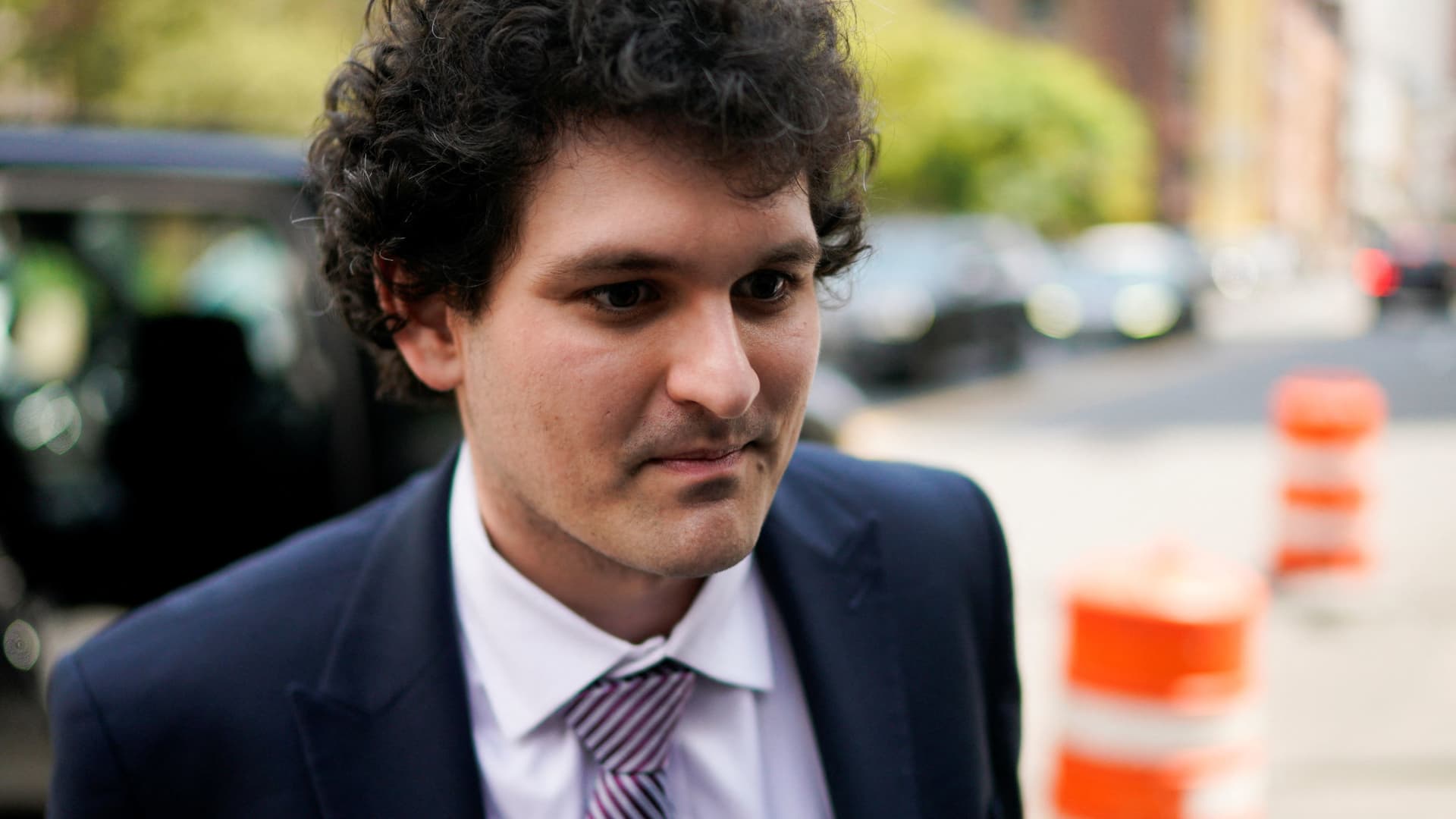Sam Bankman-Fried, the alleged crypto criminal who stands accused of masterminding one of the biggest financial frauds in U.S. history, was considering paying Donald Trump $5 billion not to run for president, according to best-selling author Michael Lewis.
In an interview with CBS’s “60 Minutes” that aired on Sunday, Lewis said the FTX founder wanted to put a stop to a Trump White House run in 2024 over fears that the former president was a threat to democracy. Lewis traces the rise and fall of the crypto entrepreneur in his latest book, “Going Infinite,” which comes out on Tuesday, the same day Bankman-Fried’s first criminal trial gets underway in New York.
“Sam’s thinking, ‘We could pay Donald Trump not to run for president. Like, how much would it take?'” Lewis said. “He did get an answer. He was floated — there was a number that was kicking around. And the number that was kicking around when I was talking to Sam about this was $5 billion. Sam was not sure that number came directly from Trump.”
According to Lewis, Bankman-Fried’s ambition to derail Trump’s presidential campaign ultimately went nowhere, in part because he wasn’t sure if his proposal was legal. Also, his crypto empire imploded in November 2022, wiping out Bankman-Fried’s billions of dollars of wealth.
A superseding indictment alleges that Bankman-Fried used customer funds to make more than $100 million in campaign contributions for the 2022 midterm elections. The government has incorporated that accusation within two of the charges that are still standing: wire fraud and money laundering. That case is set to go to trial next month in in federal court in Manhattan.
Bankman-Fried pleaded not guilty to all charges.
Lewis, who said he met with the FTX founder more than 100 times in two years, said that there’s a big difference between the alleged crimes committed by Bankman-Fried and those of past high-profile financial criminals.
“This isn’t a Ponzi scheme,” Lewis said. “Like, when you think of a Ponzi scheme, I don’t know, Bernie Madoff, the problem is — there’s no real business there. The dollar coming in is being used to pay the dollar going out. And in this case, they actually had — a great real business. If no one had ever cast aspersions on the business, if there hadn’t been a run on customer deposits, they’d still be sitting there making tons of money.”
Bankman-Fried, who faces a potential lifetime in prison if convicted on various fraud and conspiracy charges, had accumulated a net worth of around $26 billion before he was 30 based on how private investors valued FTX.
Prosecutors allege that Bankman-Fried misused billions of dollars worth of customer money for personal gains, like upscale real estate, as well as to cover bad bets made at his crypto hedge fund, Alameda Research.
The government says customer cash was shuttled to Alameda via two channels: users depositing cash directly into accounts held by Alameda and through a secret backdoor that was baked into FTX’s code.
When asked whether Lewis believed Bankman-Fried had knowingly stolen customer money, Lewis responded, “No.”
“In the very beginning, if you were a crypto trader who wanted to trade on FTX and wanted to send dollars or yen or euros onto the exchange so you could buy crypto, FTX couldn’t get bank accounts,” Lewis said. “So Alameda Research, which could get bank accounts, created bank accounts for people to send money into so that it would go to FTX.”
Ultimately, $8 billion of FTX customer money piled up inside of Alameda Research. Here’s how Lewis said Bankman-Fried explained his lack of recognition of that much money sitting in a private fund.
“You have to understand that when it went in there, it was a rounding error, that it felt like we had infinity dollars in there, that I wasn’t even thinking about it,” Lewis said.
Lewis balked at the comparison to Theranos founder Elizabeth Holmes, who’s in prison facing a sentence of more than 11 years for defrauding investors about the capabilities of her company’s blood-testing technology.
“It’s a little different supplying, you know, phony medical information to people that might kill them,” Lewis said. “And in this case, what you’re doing is possibly losing some money that belonged to crypto speculators in the Bahamas. On the other hand, this is not to excuse. He shouldn’t have done that.”
Lewis shared an anecdote about Bankman-Fried of the FTX founder playing a videogame during his first interview on television.
“He goes on TV in his cargo shorts and his messy hair and he’s playing video games while he’s on the air,” Lewis said. “If you watch the clip you can see his eyes going back and forth, back and forth. It’s because he’s trying to win his video game at the same time he’s on the air.”
